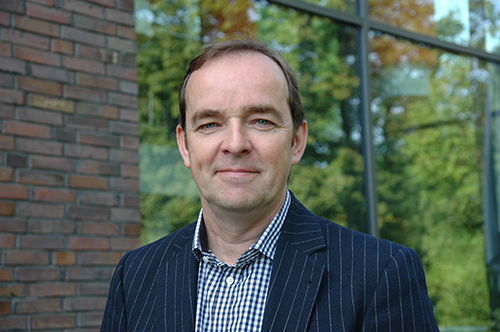Time
January 19, 11.00: Science Journalism and Communication
Topic
Alternative facts or Enlightenment? – Challenges in the age of digitalized science communication
“I think the people in this country have had enough of experts… from organisations with acronyms saying they know what’s best,” announced Michael Gove, the “Exit E. U.”-campaigner shortly before the UK’s brexite vote. The Science Community in Germany is becoming increasingly aware of the fact that citizens trust in science is based on preconditions that science alone cannot sustain. How then should scientists communicate effectively with nonscientific publics? What role do science journalists play in a knowledge society? In his lecture, the editor-in-chief of the Science Media Center Germany will give a brief overview into why and when lay people trust or distrust scientific knowledge, how they get to know who knows what about what and why even robust knowledge develops into a scarce resource in the age of digitalized mass media. The question of finding and communicating evidence is at its heart one of the most important ethical question in modern democracy. If reliable knowledge and certified expertise are attacked, all citizens must courageously support the truth-seeking institutions that protect the public from fake news, misinformation and disinformation.
About Volker Stollorz, Editor-in-Chief Science Media Center Germany
Volker Stollorz, 54, studied biology and philosophy at the university of cologne. To finish his diploma (Master in Biology), he did a cell biological research project at the Netherlands Cancer Institute in Amsterdam, which ended up as a CELL-Paper in 1990. Despite this early success on the research front he got passionate about a career working at the interface between science, journalism and the public. To this end he became a dedicated science journalist observing and shaping the border zones between different social spheres. He has written extensively about the life sciences and the unfolding public debates and covered the complex road of discovery and innovation in the field of biotechnology as a personal passion. A science journalist or editor since 1991 he has been involved in the birth of three major science sections in eminent national german weekly newpapers, DIE ZEIT (1992), DIE WOCHE (1993-1998) and Frankfurter Allgemeine Sonntagszeitung (2001-2014). In 2015, he became the founding CEO and Chief Editor of the Science Media Center Germany, a non-for profit organization that helps journalists find scientific expertise when science hits the headlines (www.sciencemediacenter.de). He is a member of the German Association of Science Journalists, the Wissenschafts-Pressekonferenz (www.wpk.org). For his articles in the field of science journalism he has received numerous awards, e.g. in 2004 the Stefan von Holtzbrinck Prize for Science Journalism, in 2009 the „European journalism prize“ from the association of german medical journalists (VDMJ) and in 2015 the Universitas Prize for Science Journalism of the Hanns Martin Schleyer. He lives in the city of Cologne, where he helped create a local Cancer Research Foundation.
His motto towards science journalism is derived from what you hear if you travel the tube in london: „Mind the gap, please.“
